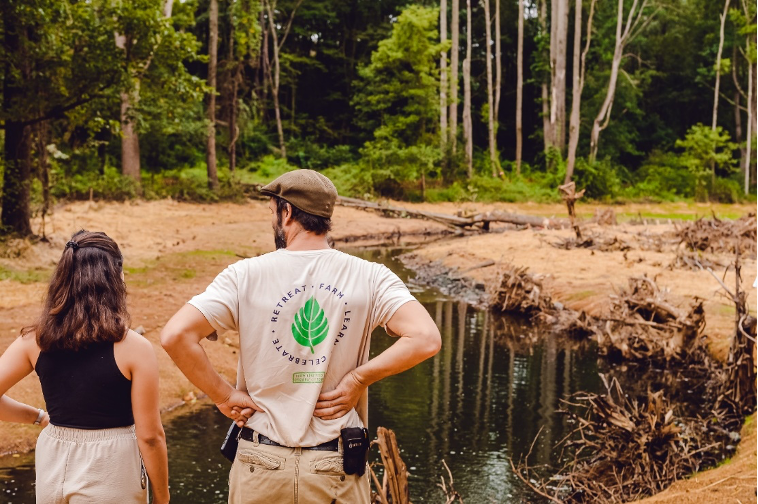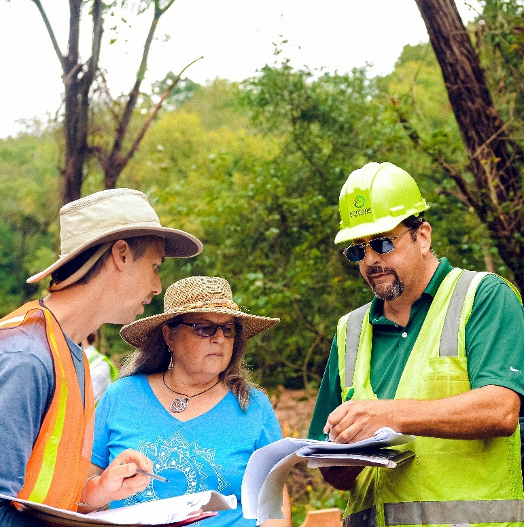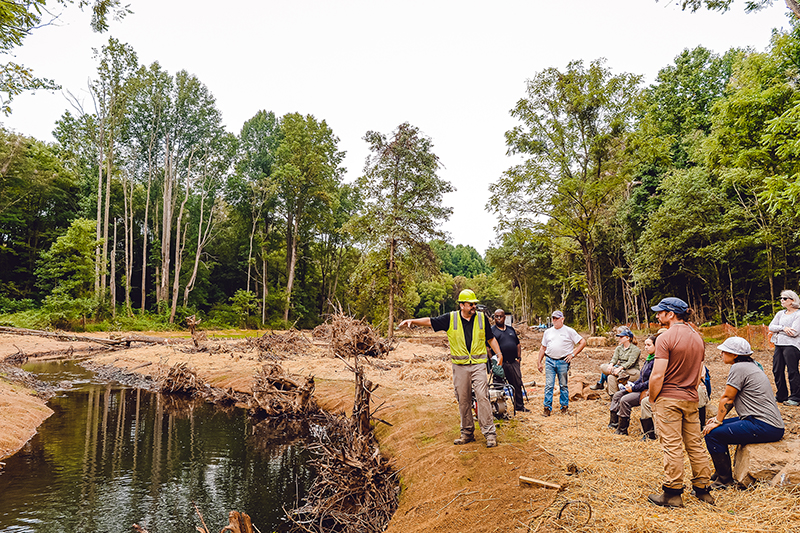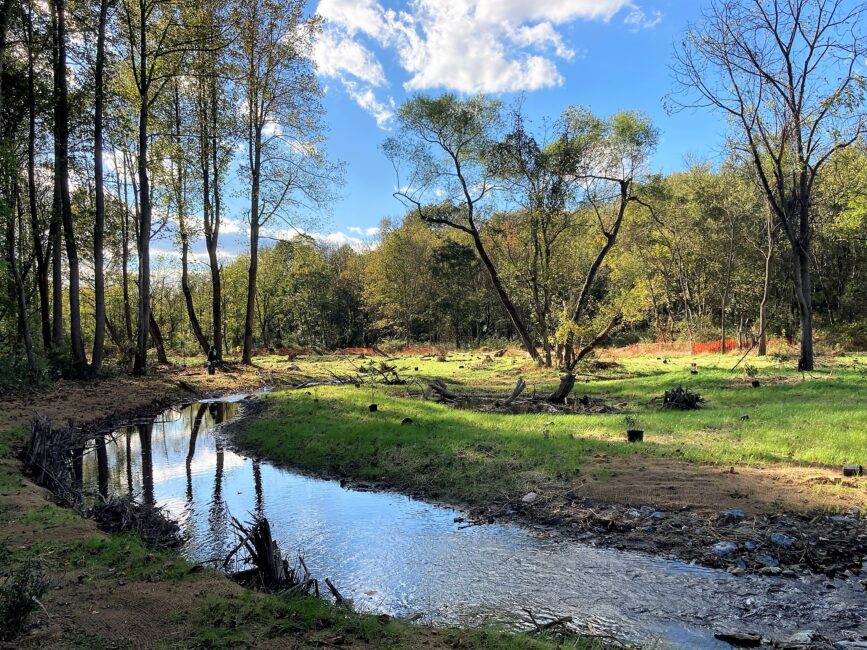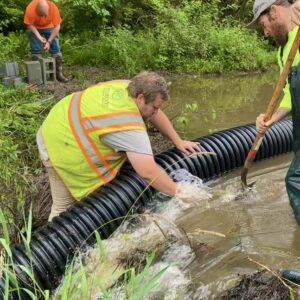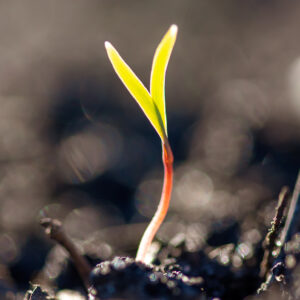“Well, it’s a true ecotone,” says Senior Project Manager Mark Magness of the stream restoration project at the Pearlstone Retreat Center and Outdoor Education Campus in Reisterstown, Maryland. The hill leading down to the 1,300-foot stretch of stream being re-directed, re-graded, and re-planted to reduce runoff and improve ecological function was alive with blazes of goldenrod and buzzing of earth-moving equipment. If you look up the meaning of ecotone, most definitions will refer to the transitional zone between two adjacent biological communities. In this case, Magness is not referring to Ecotone Inc, or even this conventional definition of an ecotone, but rather to the broader intersection of the natural environment and human culture.
In 2016, Pearlstone completed an intensive master planning process to create a cohesive, intergenerational vision for its recently expanded 180-acre campus as a resource not only for the Jewish community, but the greater Baltimore region and beyond. The Pearlstone campus features an organic farm, retreat center, events spaces, year-round outdoor educational programing, and a substantial area dedicated solely to natural habitat. When asked about how the stream restoration project rose to the top as a priority for the organization, Greg Strella, the Center’s Director of Stewardship said “Tikkun Olam [Hebrew for “repair the world”] is one of the many Jewish principles that point at our responsibility to care for life, and it’s very much woven into Pearlstone’s mission.” Strella went on to explain that part of caring for life at Pearlstone means caring for the Earth and fostering a responsible and sustainable relationship with the land. Looking at the degraded state of the stream and citing land management practices of past generations, Strella and his team felt responsible and energized to invest in restoring the stream, what he says will set up a cycle for sustained health and abundance for future generations.
As Director of Community Sustainability, Dr. Joan Plisko leads Pearlstone’s robust community education program. In August 2021 she and Ecotone co-led an “Eco Learning Workshop” which involved a stream walk and discussion of the local habitats and the land’s connection to the Chesapeake Bay. Plisko is looking forward to the creek and wetlands being more accessible to visitors after the restoration is complete and says that the restoration projects will be a way for everyone to learn more about water and the role it plays in our health.
“Everybody at Pearlstone lights up when we talk about the mikvah,” says Strella. A mikvah is a pool of typically spring or naturally sourced water used for immersion prior to marriage, conversion to Judaism, and for many other traditions in various Jewish communities. While many mikvahs now are located indoors, Ecotone was able to form two natural mikvahs in the stream using toe wood structures at a bend in the stream to create the necessary deep pool. Strella described the purpose of these mikvahs at Pearlstone as “a way for people to relate to water as holy, an experience to draw attention to the life-giving properties of water.” He also calls out the commonality of holy water in many religions, and how water is not only central to these customs but also to human health, which touches back on the ecotone that Mark Magness mentioned. At Pearlstone, the attention given to the sustainability of their practices in the long run is an ideal merging of natural and social communities.
Reflecting on the progress of the project, Strella says that Pearlstone has gotten more out of it than they’d expected. Not only are the physical changes to the land being realized, but the deep alignment of Pearlstone and Ecotone’s visions, values, and cultures have created a process and outcomes that everyone is excited about. “Our experience in working with Ecotone staff has been that they’re talented, consistent, friendly, and hard working. It’s a special mix,” says Strella. With the first phase of Pearlstone’s master plan nearing completion, he is looking forward to inspiring others to join this effort. Pearlstone is already sharing this restoration work with neighbors, community members, and other institutions to inspire the transformative local and regional investment in caring for the Earth that we all need and want.
